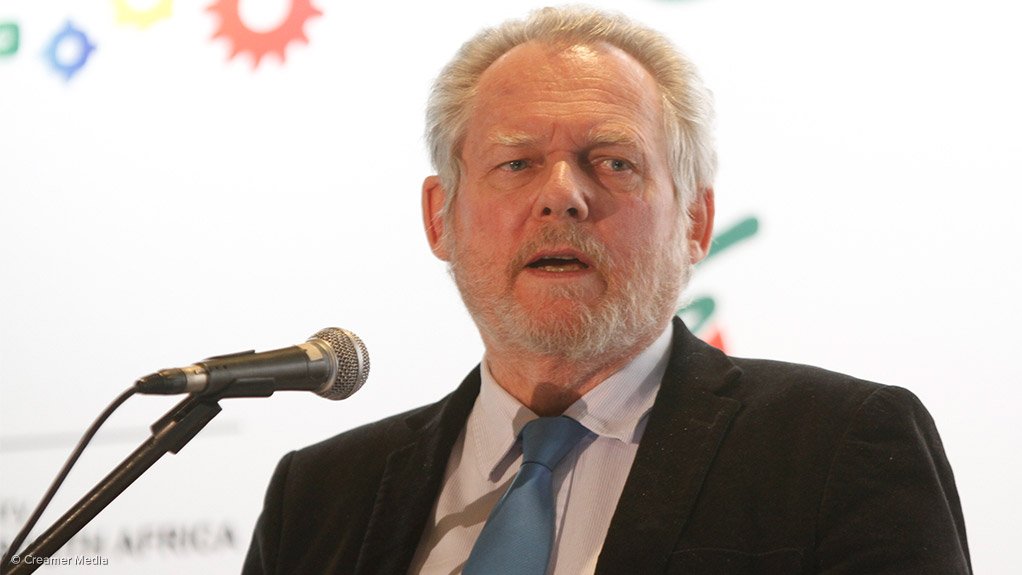/ MEDIA STATEMENT / The content on this page is not written by Polity.org.za, but is supplied by third parties. This content does not constitute news reporting by Polity.org.za.
The Minister of Trade and Industry, Dr Rob Davies, has arrived back in the country, from France where he attended the Informal Gathering of World Trade Organisation (WTO) Trade Ministers Meeting on 23 May 2019. The meeting took place on the side-lines of the Organisation for Economic Co-operation and Development (OECD) Ministerial Council Meeting on 22-23 May 2019. The objective of the WTO Trade Ministers Meeting was to exchange views on the challenges facing the Multilateral Trading System, mechanisms to be put in place to generate consensus in view of the agreed deadline for the Fisheries subsidies negotiations. The meeting also discussed what WTO Reforms and the negotiating outcomes can be achieved by the 12 WTO Ministerial Conference (MC 12) to be held in June 2020 in Kazakhstan.
The negotiations on fisheries subsidies aim to respond to the commitment made under the Sustainable Development Goals where-in Members have agreed to prohibit certain forms of fisheries subsidies which contribute to overcapacity and overfishing; eliminate subsidies that contribute to illegal, unreported and unregulated fishing; and refrain from introducing new such subsidies, by 2020. The need to recognise that appropriate and effective special and differential treatment (SD&T) for developing and least developed countries should be an integral part of the WTO fisheries subsidies negotiation is an critical issue raised by many developing counties including the African, Caribbean and Pacific (ACP) Group.
“The outcome of negotiations on fisheries subsidies must capture the concerns of developing members on special and differential treatment in a more granular fashion by building S&DT purposefully into substantive disciplines and not merely as an after-thought” said Davies.
The outcomes of these negotiations will have implications for the fisheries sector as the fisheries subsidies and fleets of large subsidizers and their large-scale industrial fishing fleets cause an immense amount of damage to the environment and degrade opportunities for small-scale and subsistence fishers thereby compromising food security, employment and general social stability in communities’ dependent on the sea for income and sustenance.
In relation to the reform of the WTO, “our view is that the reform of the WTO should fundamentally be about reform for development and inclusivity. For South Africa, the resolution of long outstanding issues remains an important issue to be addressed. We continue to seek meaningful outcomes in agriculture, especially on domestic support, cotton, public stockholding, Special Safeguard Mechanism, as well as on fishery subsidies, and the G90 S&D proposals”, said Davies.
The Informal Gathering of WTO Trade Ministers was attended by 33 countries from both the developed and developing countries and provided countries an opportunity to exchange views on possible outcomes for MC12. A number of countries emphasised that MC12 must register progress on the long outstanding issue of removal of trade distortions in agriculture. Calls were also made on the need to prioritise the resolution of the impasse on the appointment of members of the Appellate Body, one of the key institutions in the dispute resolution mechanism of the WTO. Members underlined the importance of a functional dispute resolution mechanism to ensure the predictability of the multilateral trading system and the enforcement of commitments.
Caption: Minister Davies flanked by (from left) Kenyan Principal Secretary for Trade: Dr Chris Kiptoo, EU Trade Commissioner: Cecilia Malmstrom and Nigerian Trade Director General: Ambassador Chiedu Osakwe
Issued by The Department of Trade and Industry
EMAIL THIS ARTICLE SAVE THIS ARTICLE ARTICLE ENQUIRY
To subscribe email subscriptions@creamermedia.co.za or click here
To advertise email advertising@creamermedia.co.za or click here











